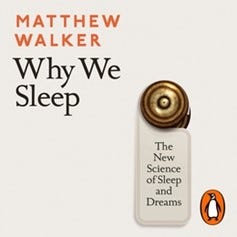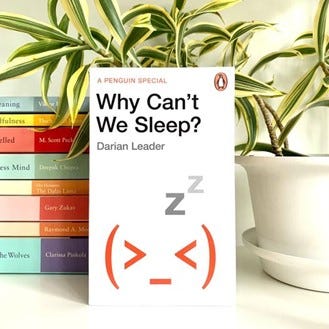Perfectionists, When Do You Know ‘When Enough Is Enough’?
What keeps perfectionists up all night? Their fears of letting others down? Or not doing enough? They might be trapped in this unsustainable flawlessness race but there is a solution, let's find out.
It’s 2.38 am and I can’t sleep. Something is keeping me up and despite the fact I needed to look fresh and sharp in the morning, my body doesn’t want to cooperate. I keep staring at the ceiling.
As I meticulously try each technique for falling asleep, I wonder if insomnia is some sort of self-inflecting curse that can only be broken when we figure out the root cause of this bedtime torture. But if it is true, why do we do it to ourselves?
In the UK, one in every three people suffers from insomnia – the sleeping disorder defined by the DSM-5 (Diagnostic and Statistical Manual of Mental Disorders) as a persistent difficulty in initiating sleep; taking a long time to fall asleep, maintaining sleep; frequent awakenings or waking up too early or experiencing non-restorative sleep, despite having an adequate opportunity to sleep.
So, if my theory is right, there should be more than 20 million people accustomed to running a sleepless marathon throughout their lifetime. No wonder why early team meetings are a preposterous idea, stop doing it!
The impacts of insomnia on business and employee performance in the UK are somewhat concerning: -
Insomnia leads to a loss of productivity, with studies estimating that insomnia-related productivity losses cost UK businesses approximately £40 billion annually.
In addition, insomnia contributes to higher healthcare costs for employers, as employees with sleep disorders often require more medical treatments. Employers spend an estimated £8.9 billion annually on healthcare costs.
Employee engagement and morale are also affected, leading to a 13% decrease in employee performance and an increase in turnover rates. Engaged employees are more productive, but insomnia reduces their engagement levels significantly.
At 3.17 am, flashbacks of my experience as a Helpline Sleep Adviser for the Sleep Charity pop into my mind. My main duties were to signpost and provide advice to adults suffering from sleep disorders such as insomnia, narcolepsy, sleep apnoea, recurring nightmares, sleepwalking, sleep paralysis, and more.
The one thing that stood out to me was how knowledgeable the callers were. In some cases, they would outsmart me and my supervisor, whilst sipping their chamomile and vervain teas. They all limited their exposure to blue lights from their phone or laptops, which impact the production of melatonin, a hormone that regulates sleep. Their diet was super “sleep compliant”; no caffeine, sugar, and heavy meals before going to bed. Their bedrooms were cool, dark, and quiet, anything you need to fall asleep easily, with some investing a fortune in a comfortable mattress and pillows. They’d all had warm baths with extortionately expensive essential oils and sunbathed during the day to increase their vitamin D daily intake. They all meditated and knew advanced breathing techniques. Finally, they all read the famous “Why We Sleep” by Matthew Walker, which is the bible of any sleep expert.
Seriously, were they calling to look for support or to show off their knowledge and put me to shame? But if knowledge is power, how come it has the total opposite effect with those insomniac sleep gurus? Could it be that in this perpetual quest for perfect health, they have traded their natural limits for inflated knowledge on “how to sleep”, leaving them in a permanent state of sleep debt?
In other words, if perfectionists have a proclivity to insomnia, will it be always the case?
In his controversial book “Why We Can’t Sleep”, Darian Leader, explores different perspectives on the anthropological changes in our society that explain our new relationship with sleep.
The author depicts the impacts of the Industrial Revolution on our sleep patterns; as the capitalist system needed its workforce to be fully operational to work as much as possible during the day, causing the demise of the ‘biphasic’ sleep pattern.
In the pre-industrial era, most people in the Western world and other parts of the world did not consider sleeping 8 hours straight as normal. Their sleep was biphasic; split into two phases during the night; they would start sleeping at 9 pm and would wake up around midnight for an hour or two to complete diverse chores or any religious duties. After this, they would go back to bed for a second sleep. With each biphasic sleep schedule, the person was still obtaining a total of at least seven hours of sleep per day.
With the introduction of shift work schedules workers had to adapt to irregular and often long hours, disrupting the natural sleep patterns to match the requirement of having an equal 8-hour split between work, leisure, and sleep!
Moreover, industrialisation opened the door to technical innovation such as artificial light, with workers working more hours beyond the natural daylight limitations. These changes led to increased instances of sleep deprivation and irregular sleep schedules.
Nowadays, to meet society's expectations, we’ve seen more employees using sleeping pills and melatonin supplements over the past decades. The extra usage of technology to monitor our sleep, and the pressure of valuing hard work over rest “we will sleep when we die”, made us somehow too perfect to fall into this very natural state of rest.
As the proof seems to be in this post-industrialised over-optimised pudding, we can start realising that falling into Morpheus’s arms in the Western world has turned out to be like an impossible dream.
So, if the perfectionist inside us prevents us from sleeping, how does it manifest during the day with our colleagues, and most importantly can we put it on pause?
Perfectionists are infected by a disease that involves delivering everything flawlessly whilst maintaining an impeccable appearance all the time - being the number one both night and day. Mais quel cauchemard!
But when you look at it more closely, you can see two types of perfectionists:
The Perfect Masochist
We have all worked with colleagues, who were unable to delegate because they were too concerned you would not be able to handle the task, even if you happen to do a task assertively. They will “tweak” your presentation by changing the whole content and reformatting everything.
Although it might not be an ego booster to deal with a colleague with severe acute attention to detail syndrome, these perfectionists (inward) are driven by the fear of failing and being judged incompetent. And they will do whatever it takes to avoid the painful taste of public humiliation.
The Outwardly Perfect
This type of perfectionist on the other hand exerts a virulent demand for excellence to impress their colleagues or at worst, demonstrate their superiority. Whilst they always want to go above and beyond, which is the dream for any employer, they also take pleasure in making you feel like sh*t. Unfortunately for them, their unhealthy competitive mindset is shattered once they realise the devil is in the details spotted by another colleague, who happened to be stronger, better, and faster than them!
As I finish typing the last paragraph of this article, I am going to bed knowing that perfectionists will never know when enough is enough; it is part of the condition.
However, I wondered if to break the curse that kept me awake all night (it's now 4.21 for Christ's sake), the only thing I could do was to accept that what I have written is just enough!
Good night.
SOURCES
"Why sleep matters – the economic costs of insufficient sleep"
https://www.sleep-hero.co.uk/the-great-british-bedtime-report
https://wellbeingnews.co.uk/news/new-study-reveals-how-the-uk-is-sleeping-post-pandemic/
https://www.theguardian.com/society/2022/jan/17/nhs-doctors-tired-impairment-sleep-deprived-survey
https://thesleepcharity.org.uk/information-support/adults/sleep-disorders/insomnia/








